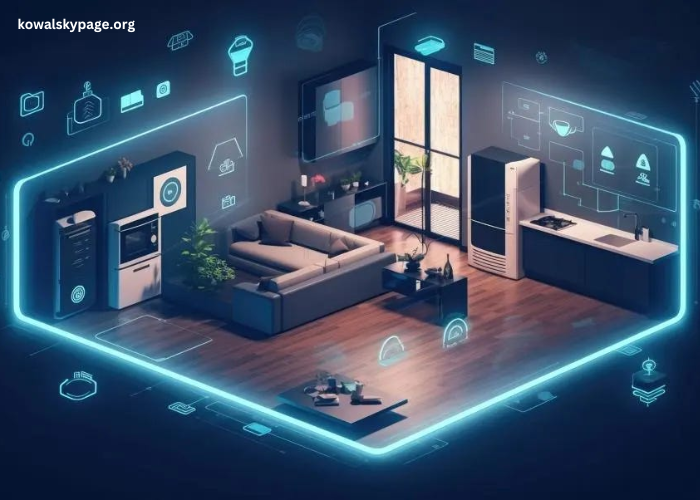In an era where technology evolves rapidly, smart devices have become an integral part of our daily lives. From the moment we wake up to the moment we go to bed, these devices play a crucial role in simplifying tasks, increasing efficiency, and providing entertainment and convenience. But what exactly makes these devices “smart,” and how are they transforming the way we live? Let’s explore how smart devices enhance daily life and the benefits they bring.
What Are Smart Devices?
At their core, smart devices are any electronic gadgets that connect to the internet or a network, enabling them to be controlled remotely and interact with other devices. These devices often incorporate artificial intelligence (AI), sensors, and automation to make decisions or carry out tasks with minimal human intervention. Popular examples of smart devices include smartphones, smart thermostats, smart speakers, fitness trackers, and home security cameras.
How Smart Devices Enhance Daily Life
1. Improved Convenience
One of the main advantages of smart devices is the level of convenience they bring. Take, for instance, smart speakers like Amazon Alexa or Google Assistant. These devices can control various smart home elements, such as lights, thermostats, and appliances, simply through voice commands. Imagine walking into your home after a long day, and with a simple voice prompt, the lights turn on, the music starts playing, and the temperature adjusts to your preference—without you needing to lift a finger.
Smartphones also play a huge role in everyday convenience, with apps that manage everything from grocery lists and shopping to banking and entertainment. With mobile payments, the need to carry cash or cards is rapidly diminishing.
2. Increased Energy Efficiency
Smart devices are making it easier to reduce energy consumption, contributing not only to savings on energy bills but also to a more sustainable lifestyle. Smart thermostats like Nest or Ecobee adjust your home’s temperature based on your habits and preferences. They learn when you’re home or away, optimizing heating and cooling to reduce energy wastage.
Smart lighting systems also allow you to control the brightness of lights, and turn them on or off automatically when rooms are not in use. By adjusting these settings remotely, you can ensure that your home is never using more energy than necessary.
3. Better Health and Fitness Monitoring
Wearable smart devices, such as fitness trackers like Fitbit or smartwatches like the Apple Watch, have revolutionized how we track our health. These devices monitor vital signs, including heart rate, sleep patterns, and physical activity, providing real-time data and insights to help individuals make healthier lifestyle choices.
Some smart devices even go a step further by offering personalized recommendations based on the data they collect. Whether it’s suggesting a new workout routine or reminding you to take a break, these devices promote proactive health management and wellness.
4. Enhanced Security and Safety
Smart home security systems are another game-changer, offering peace of mind by integrating cameras, motion sensors, doorbell cameras, and smart locks. Devices like Ring doorbells allow homeowners to monitor their front door from their smartphones in real-time, while smart locks enable keyless entry, so you can lock and unlock doors remotely.
In addition, many smart home security systems have built-in AI to distinguish between real threats and non-threatening situations, such as pets moving around or harmless motion outside. This reduces the number of false alarms and ensures that the system only alerts homeowners when necessary.
5. Streamlined Communication
Smart devices also enhance communication by making it easier to stay connected with friends, family, and colleagues. Video conferencing tools like Zoom, Skype, or FaceTime have become ubiquitous in both personal and professional life. With the integration of smart speakers and assistants, users can initiate calls or meetings with voice commands, making communication even more efficient.
Additionally, smart home devices can provide notifications or reminders about important events or appointments, keeping you organized and ensuring you never miss a meeting or social gathering.
The Future of Smart Devices
The future of smart devices is filled with limitless possibilities. As AI, 5G, and the Internet of Things (IoT) continue to evolve, smart devices will become even more intuitive and interconnected. Imagine a fully automated home where your devices anticipate your needs based on your routines, or health monitoring systems that proactively alert medical professionals if something is wrong, offering instant care when needed.
The integration of smart devices into industries like healthcare, transportation, and education also holds incredible promise. In healthcare, for instance, smart devices could allow for more accurate remote monitoring, early disease detection, and personalized treatment plans. In education, smart technology can provide interactive learning experiences and adaptive lesson plans.
Conclusion
Smart devices are not just a luxury—they are transforming how we live by enhancing convenience, energy efficiency, health management, security, and communication. As these technologies continue to evolve and integrate into our lives, we can expect a future where our world is even smarter, more connected, and more intuitive. Embracing these advancements in smart technology can empower us to live more efficiently, safely, and healthily, making everyday tasks simpler and more enjoyable.





